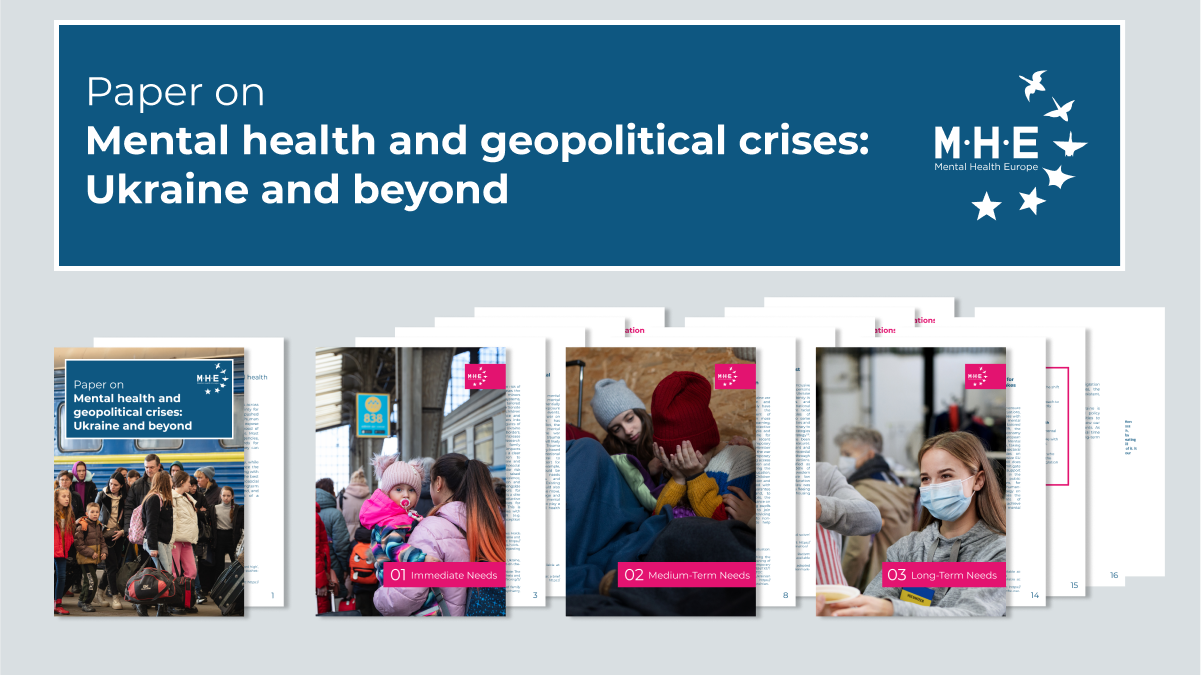MHE Publishes Paper on Mental health and geopolitical crises: Ukraine and beyond


Globally, there is no shortage of countries in conflict. The war in Ukraine has sent ripples across the world, leading to stark uncertainty for societies and the economy.
The Ukraine war has also pushed global displacement to a record high, resulting in the largest human displacement crisis recorded in the world today. Latest records show that 6.86 million Ukrainians have fled the country, while 6.64 million are estimated to be forcibly displaced inside the country.
It is well known that the burden of mental health problems is high in conflict-affected populations. Wars and conflicts can expose individuals to different traumatic events when people are forced to uproot their lives and those of their families’ seeking safety and survival. Such displacements result in people leaving behind all those things that protect mental well-being such as social networks, employment, shelter, educational settings to mention a few. This of course increases the likelihood of developing or experiencing worsening mental health problems. As with any emergency, action to protect mental health is key, not only for the immediately affected persons but for the whole society.
Since the onset of this conflict, Mental Health Europe (MHE) has been liaising with its members to closely monitor the evolving situation and discuss the best possible approaches to address mental health needs and psychosocial services.
Migrants’ mental health, although affected by the entire migration experience, often remains an afterthought. In many places, the capacities for providing tailored services are stretched or non-existent, while financial and human resources are scarce.
This paper aims to explore the key short, medium, and long-term challenges to mental health linked to the Ukraine war and beyond, and how mental health support should be prioritised as part of a comprehensive approach to well-being.
The challenges and devastations caused by the war in Ukraine are irrefutable. With increased attention, solidarity and policy interventions, this unprecedented situation grants a chance to reframe the way we talk about mental health and underline how our mental health is shaped by a wide range of social determinants.
As governments continue to introduce policy measures, it is a crucial time for investments in a whole-of-society response to mitigate the long-term effects of the war on the mental health of all those affected.
Stay connected
Get our latest news, personal stories, research articles, and job opportunities.

